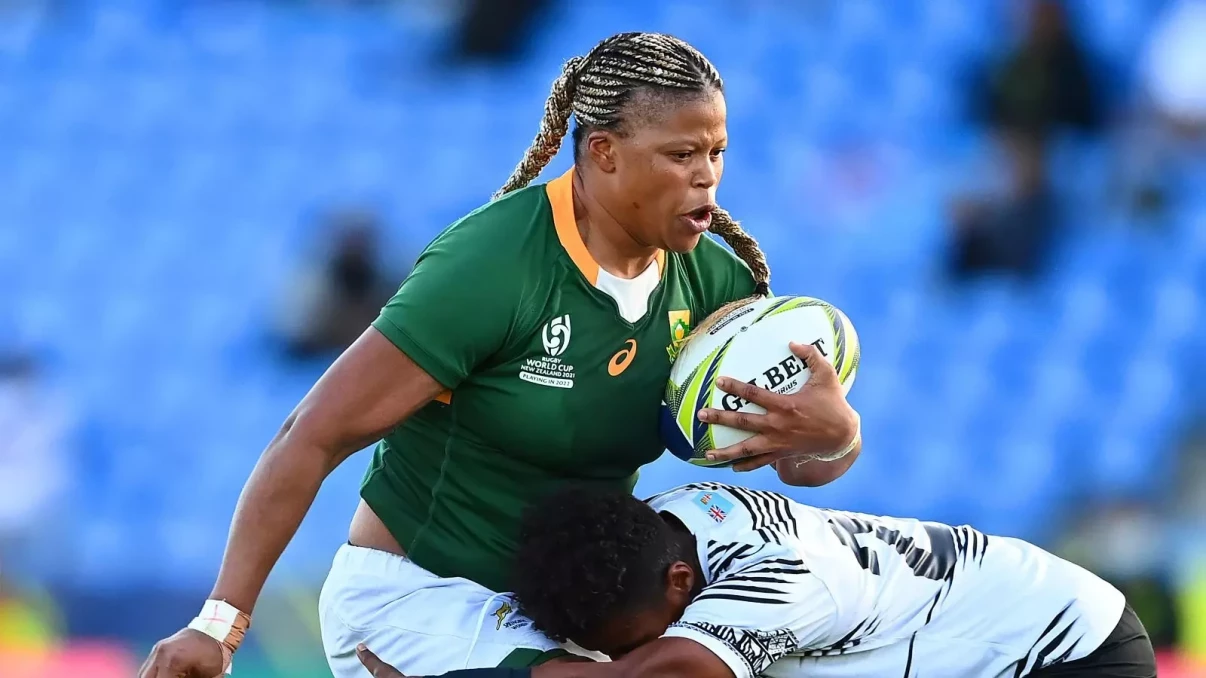Hele at crossroads as family obligation clouds European offers
By Kate Nokwe
17th March 2023

Standout Springbok Women's no 8 Aseza Hele looks poised for a long-awaited overseas move after her stellar performances at last year's Women's Rugby World Cup.
The loose forward confirmed to SABC Sport she has been in conversation with multiple clubs from abroad including two top teams in the Premiership in England. But as lucrative as that may be on paper, Hele must wrestle with what many young black South Africans must deal with as soon as that first cheque clears.
“At home, I’m the breadwinner”, Hele explained.
“Most of the clubs, to them it’s just to give you experience. We (South Africans), want to go there to make a living. Experience it great, but to go there is expensive first. And at home they expect you to send money. So you have to think twice before making big decisions.”
When Springbok captain Siya Kolisi's life story made international headlines ahead of the 2019 Rugby World Cup, there was something unique about it.
A once-in-a-lifetime story of rags to riches, one heard around the fireside. But for many South Africans, the feeling of familiarity could not be ignored or escaped.
Bok Woman loose forward Hele is one of many.
A big ball carrier, much like Kolisi, with an animal instinct on the pitch that is synonymous with the World Cup winner. And yet she is the exact opposite of that, perhaps having the same personality as someone you would like to have lunch with regularly.
A similar place on the field around the scrum, for the same national badge. Similar life circumstances, just a few years apart at 31 and 28, respectively.
And in similar parts of the country, townships just outside Gqeberha. Zwide for Kolisi, and KwaDwesi for Hele, whose smile earned her the nickname “Blommie” while dabbling in youth netball.
Orphaned at a young age, Hele's grandmother assumed responsibility for the youngster and her sister Athi. And instilled in her values that would take her to the highest level of an athlete's career - a World Cup.
“She taught me to stand up for myself, to be strong. And often said I can’t use the excuse that I don’t have parents to be into things like drugs. But to remember I still have people that love me”, she told SABC Sport.
Hosted a year later due to Covid-19 in New Zealand, Hele fought a 12-month injury to make the trip and rose to the occasion in her country's first participation in eight years, albeit in a losing cause, against France, Fiji, and England.
“I was so hungry and I was working so hard to get back into the system because when you’re in the Springboks you don’t have a spot. You must work your way up. So I needed to do it, for myself and prove I could still play rugby.
My personal goal was to show the world there is Aseza Hele out there that is strong, that is the best no.8 in the world.”


16_144x91.webp)





